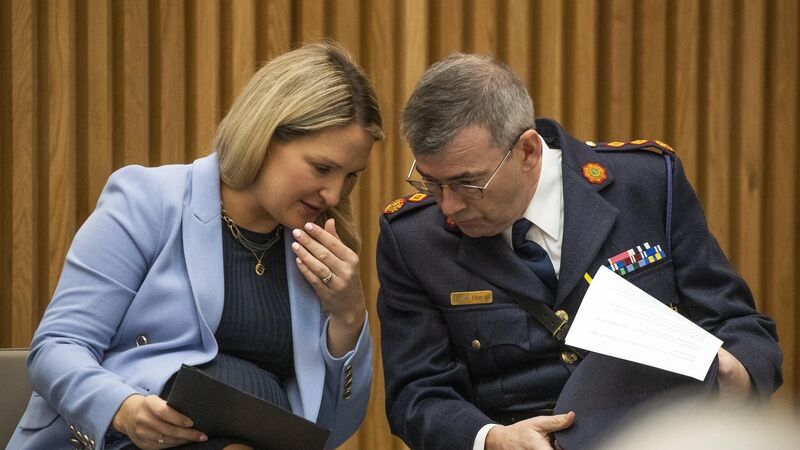McEntee says garda body-cam laws won't impact civil liberties

Justice Minister Helen McEntee and Garda Commissioner Drew Harris at the official opening of Walter Scott House in Dublin on Friday. The new building will replace the current Garda HQ at Harcourt Square. Picture: Colin Keegan/ Collins
The Justice Minister has said legislation that will allow for body-worn cameras for gardaí will address all concerns about civil liberties.
Helen McEntee said the legislation, which is expected to come before Cabinet in the next few weeks, will be within the parameters of the laws that protect privacy.










